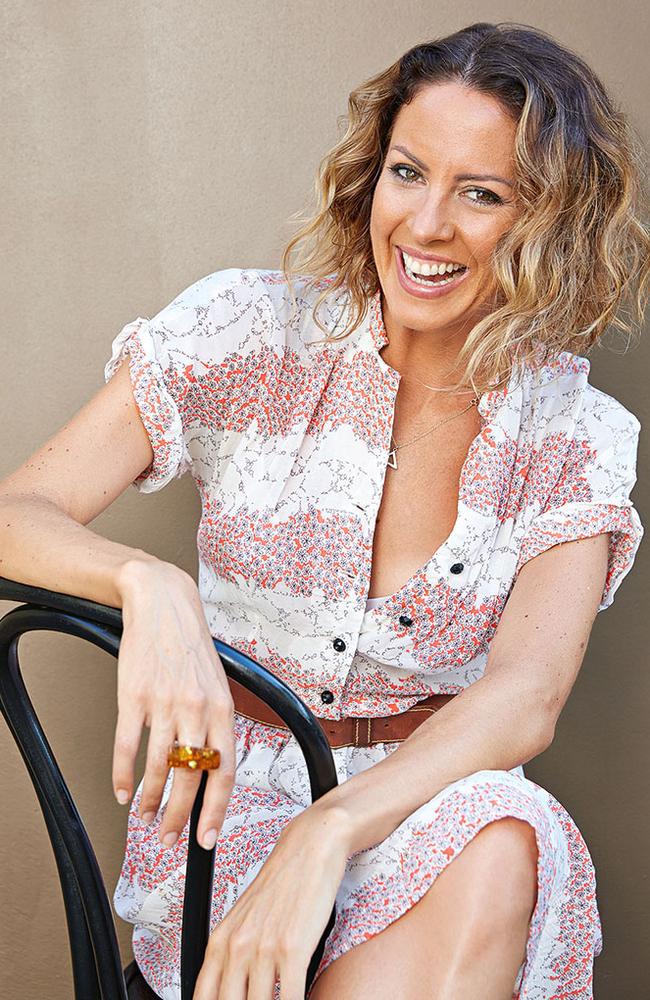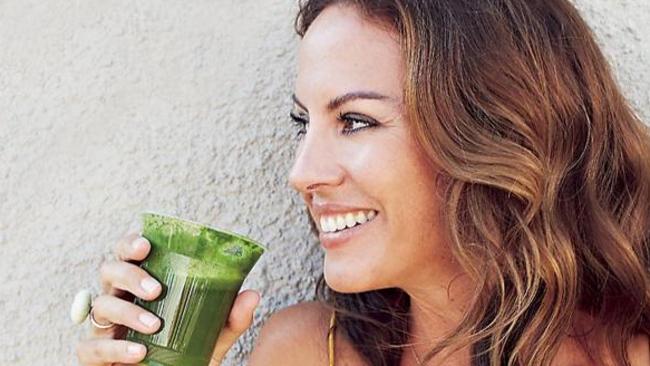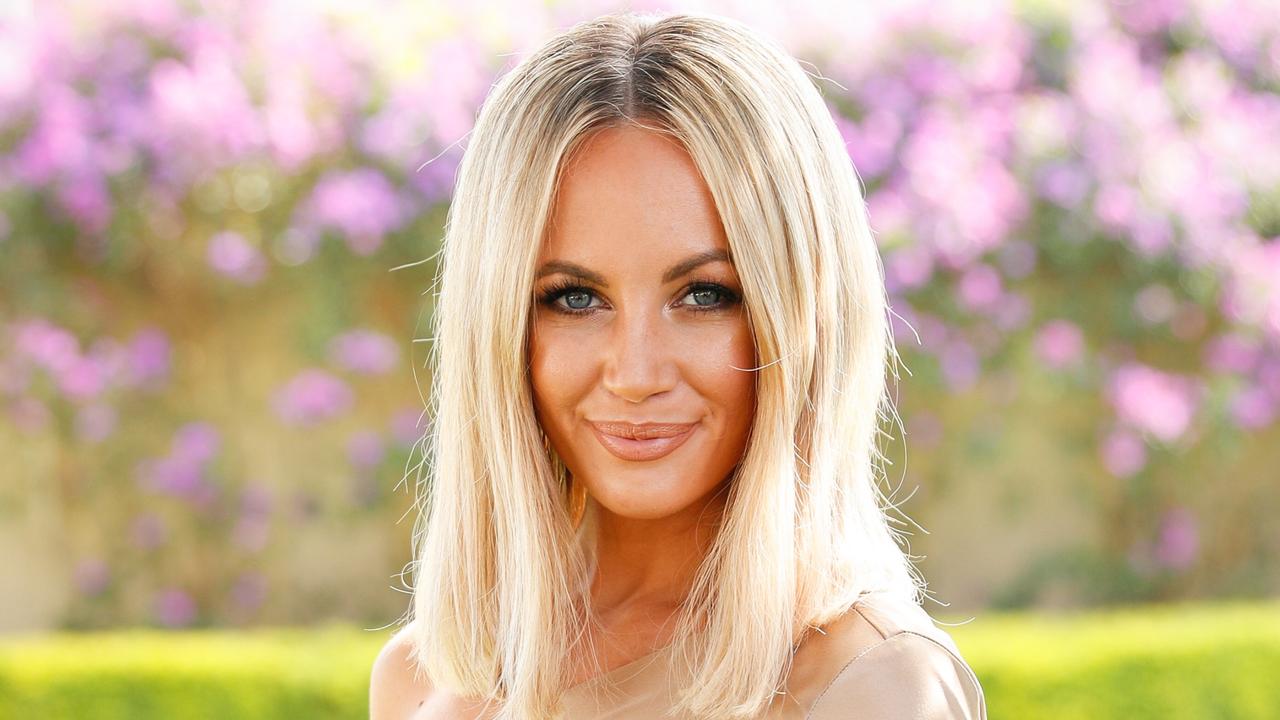Is self-hatred a cause of auto-immune disease?
ONE and a half million Australians suffer from the disease that has dogged author Sarah Wilson. Here she reveals her personal battle with herself.
I’VE wrestled with an auto-immune disease for half my life.
I got Graves disease (an overactive thyroid which saw my hair fall out and 15kg drop off my quite slight frame in less than four weeks) when I was 21. I “cured” myself via diet and rest. At 27, I then got Graves disease in my left eye. Random, yes. I had that Jeff Goldblum bulgy-eye thing going on …in one eye. Again, I “cured” myself, this time with diet and acupuncture, in the time it took for me to get to the top of the operation wait list (three month).
Then, five years ago, I was stopped dead in my tracks with Hashimoto’s, or underactive thyroid. I was the editor of one of the biggest magazines in the country at the time. But wound my health down until I was left infertile, unable to walk or work. Since then I’ve been on a slow slog of a mission to “cure” myself again.
I looked into gluten, cosmetic toxins and, of course, sugar as causes. I investigated hereditary factors, too. My grandmother had both Graves and Hashimoto’s. Of course, all such factors contribute to the knotted ball of wool that makes up my illness. But try as I have, I’ve not been able to extract the start of the thread. I haven’t been able to pinpoint the original physical cause. Was it from being raised on my poor family’s diet of day-old bread (pretty much a staple of my childhood; Mum bought it using a pig farmer’s licence for 10 cents a loaf)? Was it my insomnia that I developed aged 8? Was it the mercury I played with in the tool shed as a kid? Am I a canary down the mineshaft for our toxic planet? All questions I know pretty much all 23 million (and growing, fast) auto-immune disease sufferers in the US ask daily. (Australian figures are at one and a half million … and rising.)
Over 20 years of wrestling and putting on a bright face and having “thyroid days” that leave me unable to leave a dark room, I’ve come to learn if there is such a cause, it’s definitely got an emotional basis.

When I’m asked, as I often am, “What caused your disease?” I have to be frank and say – once all angles are ironed out – everything points to … anxiety. Or as I like to put it, a profound, visceral, itchy dis-ease with myself.
I always say that I can spot an “auto-immune type”. They have an intensity about them, a desire to impress. They’re always the ones at the front of my lectures, frantically taking notes. They have an air of ‘I’m not good enough as I am’. I know as I write this, many heads out there are nodding.
A while back I watched TED talk by Dr. Habib Sadeghi, an American “healer to the stars”, in which he cites self-hatred as the real cause of chronic disease, particularly in women.
It rung loud and true for me. Singling out women might strike as you odd. But the US National Institute of Health estimates 75 per cent of auto-immune sufferers are women.
The disparity between men and women is even worse when you look at Hashimoto’s (10 women have the illness for every one man).
The occurrence of auto-immune disease is so prevalent among women that a study published in 2000 declared it the tenth leading cause of death for all women, across all categories, between the ages of 15 and 64.
The gist goes like this…
* Illness is what happens when women, the nurturers of humanity, forget how to nurture themselves. Word!
* He draws parallels to dirt. Excessive ploughing and unmindful practices by farmers ruins the grass that keeps our soil grounded and healthy. Land is then left barren, exposed, degraded and stripped of its life-giving power. Which means when hard times strike – like a severe drought – the once-nutrient rich soil becomes lifeless dirt, devoid of any nourishing or nurturing capabilities. There’s no resilience. And humanity starves.
Got the parallel with self-care?
* So, when we don’t have the proper tools to nurture our grassland – our spiritual ecosystem, if you will – the soil of our soul becomes exposed to negative stuff. And humanity starves.
“It dries up, loses its nourishing capabilities and blows away, leaving us completely ungrounded. How many people do you know who are flighty, scattered or addicted to drama? They’ve lost their resilience, the ability to nourish and nurture their soul through the ups and downs of life.”
* What does it mean to nourish our grassland? My take is this: not constantly doubting and putting the breaks on emotions, innocently and authentically responding to things, being able to cradle and accommodate our own (sometimes extreme and erratic etc) emotional responses rather than relying on external things (other people, drugs, gurus). So that we don’t “end up living in a spiritual dustbowl of self-judgment, hopelessness, and cynicism”.

* Self-hatred is the biggest impediment to cradling ourselves, especially in women. This self-hatred emerges from thinking we’re not adhering to the ideals set out for us.
“We’re constantly putting women up against standards they can’t possibly meet. When you can’t be the ideal wife, mother, girlfriend, teacher, cook, church volunteer, corporate executive and activist at 20 pounds below your healthy body weight, what’s left but to silently (and subconsciously) hate yourself because you’re not perfect?”
And so … self-hatred causes auto-immune disease, which, boiled down, is the body attacking itself.
So how to heal?
With self-love. I rarely know what this means and it mostly seems a bit “motherhoody” to me. But I can see how key it is. You can do all the tests, elimination diets and treatments you like, but, boil it all down, there’s always a sneaking feeling that it’s more than the gluten or the toxin or the hereditary predisposition. Right?
Sometimes I sit and really feel what’s behind a flare up. The only feeling there, behind the pain and shittiness, is a cringy, self-flagellating, forward-lunging anxiety. It’s always there, whatever the flare. The same feeling.
So in some ways the solution is really much simpler and life-enriching than constantly seeking a cure, a fix.
As one of my favourite quotes reads: “There’s no need to fear the future because we know that so long as constant change is life’s nature, survival doesn’t go to the fittest, but to the most resilient—and resiliency always resides in the richest soil.”
This story originally appeared on Sarah’s Blog, which you can read here.



